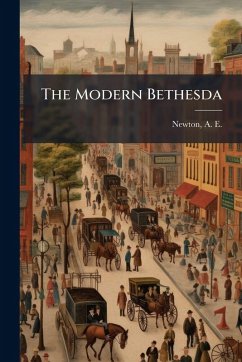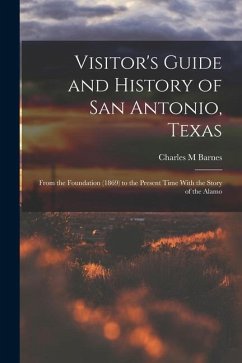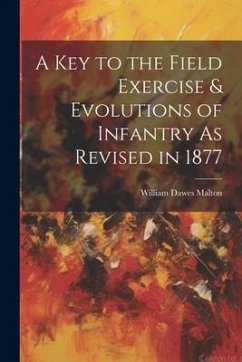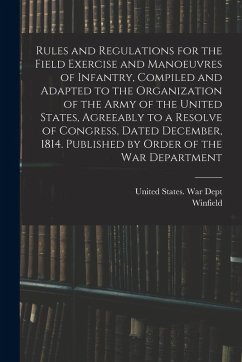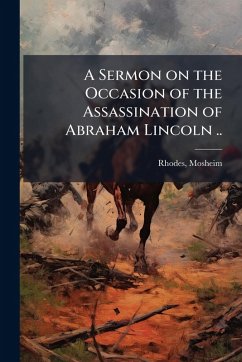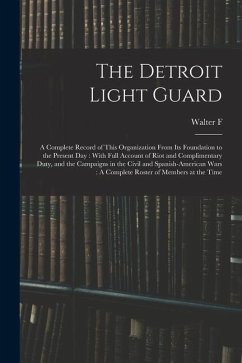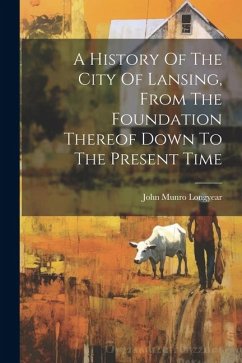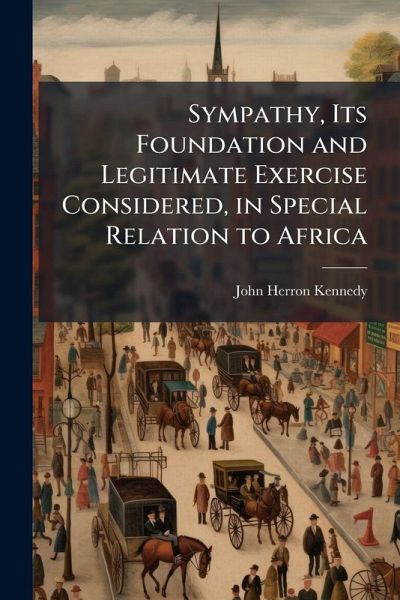
Sympathy, Its Foundation and Legitimate Exercise Considered, in Special Relation to Africa
Versandkostenfrei!
Versandfertig in über 4 Wochen
14,99 €
inkl. MwSt.

PAYBACK Punkte
7 °P sammeln!
"Sympathy, Its Foundation and Legitimate Exercise Considered, in Special Relation to Africa" is a compelling discourse delivered by John Herron Kennedy on the Fourth of July, 1828. Presented at the Sixth Presbyterian Church in Philadelphia, this oration delves into the moral dimensions of sympathy, particularly concerning the plight of Africa and the institution of slavery. Kennedy's work offers a window into the ethical and religious debates surrounding abolition in the early 19th century United States. Kennedy explores the theological underpinnings of empathy and compassion, challenging his ...
"Sympathy, Its Foundation and Legitimate Exercise Considered, in Special Relation to Africa" is a compelling discourse delivered by John Herron Kennedy on the Fourth of July, 1828. Presented at the Sixth Presbyterian Church in Philadelphia, this oration delves into the moral dimensions of sympathy, particularly concerning the plight of Africa and the institution of slavery. Kennedy's work offers a window into the ethical and religious debates surrounding abolition in the early 19th century United States. Kennedy explores the theological underpinnings of empathy and compassion, challenging his audience to consider their responsibilities towards those suffering under the yoke of slavery. This historical document provides valuable insight into the intersection of religion, ethics, and social reform during a pivotal era in American history. Its enduring relevance lies in its examination of fundamental human values and the ongoing struggle for justice and equality. This work has been selected by scholars as being culturally important, and is part of the knowledge base of civilization as we know it. This work was reproduced from the original artifact, and remains as true to the original work as possible. Therefore, you will see the original copyright references, library stamps (as most of these works have been housed in our most important libraries around the world), and other notations in the work. This work is in the public domain in the United States of America, and possibly other nations. Within the United States, you may freely copy and distribute this work, as no entity (individual or corporate) has a copyright on the body of the work. As a reproduction of a historical artifact, this work may contain missing or blurred pages, poor pictures, errant marks, etc. Scholars believe, and we concur, that this work is important enough to be preserved, reproduced, and made generally available to the public. We appreciate your support of the preservation process, and thank you for being an important part of keeping this knowledge alive and relevant.



